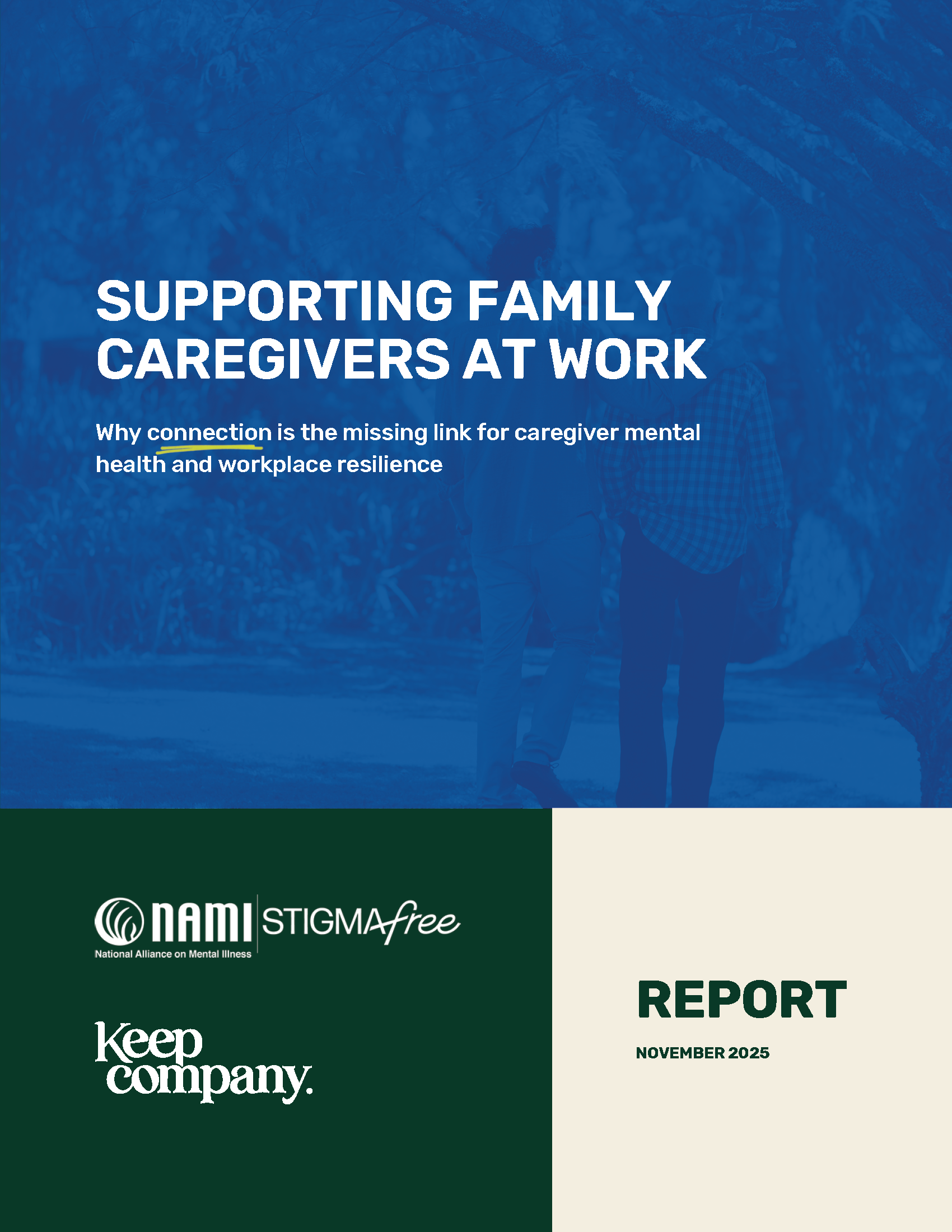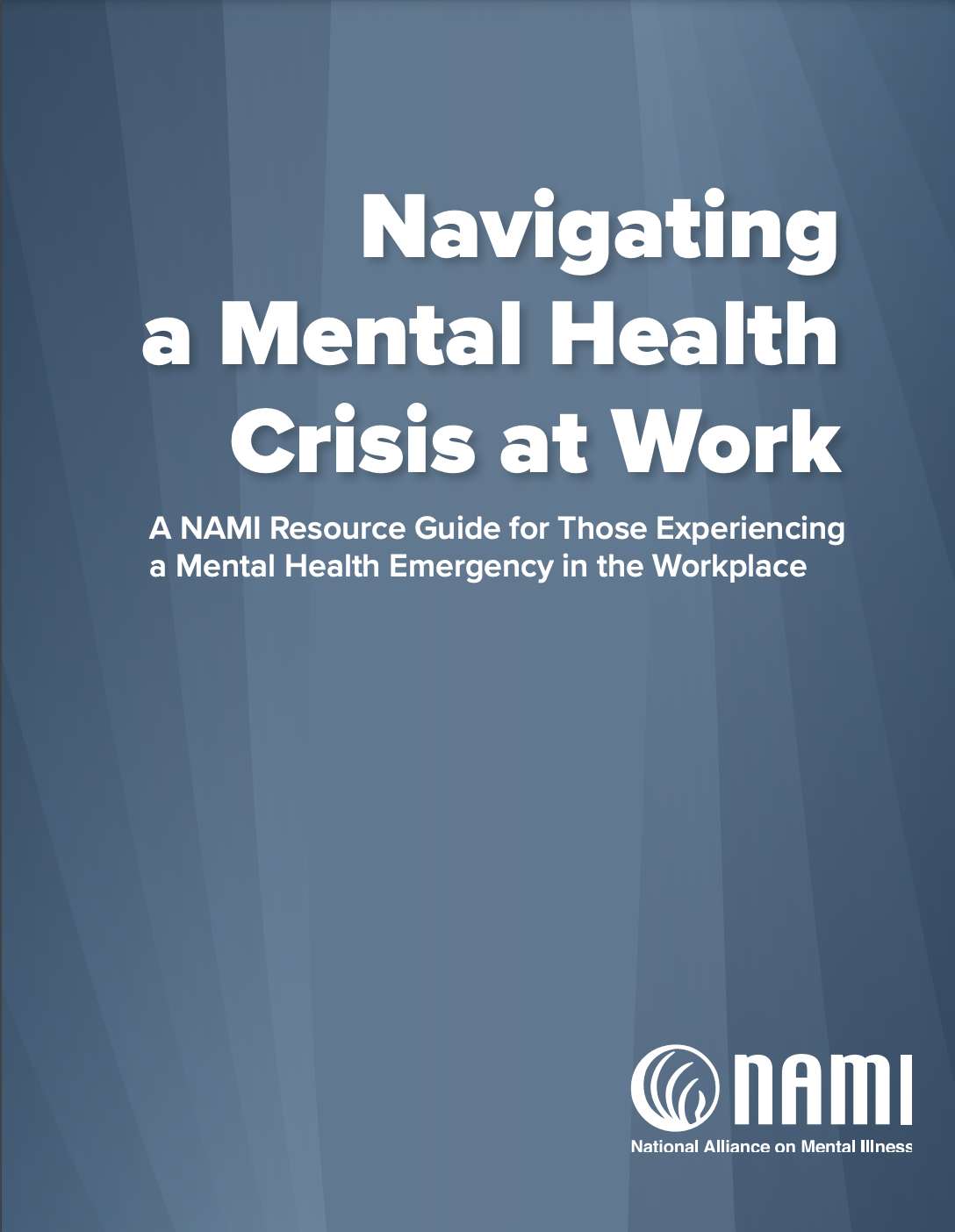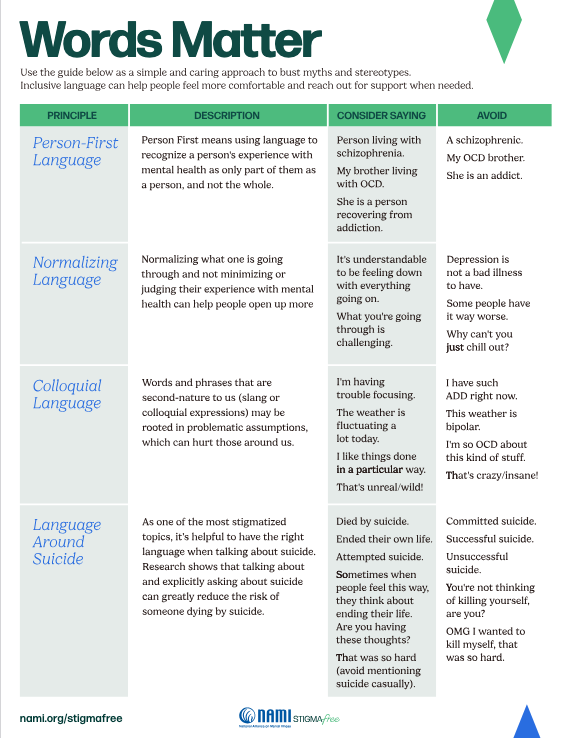Invisible and Essential: Caregivers at Work
Why connection is the missing link for caregiver mental health and workplace resilience, plus what we can do about it
Nearly everyone will give or receive care in their lifetime. The number of caregivers in the United States is growing, and the majority of caregivers are employed. It is time to recognize the contributions of caregivers in our workplaces and learn how we can better support them as leaders and as colleagues. Download our report, developed in partnership with Keep Company, to learn how your company can strengthen workplace mental health by fostering connection.
Facts about caregiving at work
- 63 million Americans are family caregivers — a 45% increase since 2015.
- 8.4 million Americans provide care to an adult living with a mental or emotional health condition.
- 16 million belong to the “sandwich generation,” caring for both children and aging adults.
- 70% of caregivers are employed, often managing care needs that rival the demands of a full-time job.
Caregiving builds the skills that workplaces need most: empathy, adaptability, problem-solving, and resilience. But most caregivers do not disclose their responsibilities to their managers because they worry they will be seen as less committed or promotable. This non-disclosure can lead to loneliness, both in and outside of the workplace.
Connection is the key
- More than 1 in 3 working caregivers say balancing work and care is their biggest stressor.
- 47% of caregivers report increased anxiety or depression in the past year.
- 52% of organizations do not keep track of their caregiving demographics.
Social support is a critical part of resilience. Connection with others is as fundamental to health and well-being as nutrition and physical activity. Without it, caregivers are at heightened risk for depression, anxiety, and burnout.
Connection is not optional. It is the future of the U.S. workforce.



